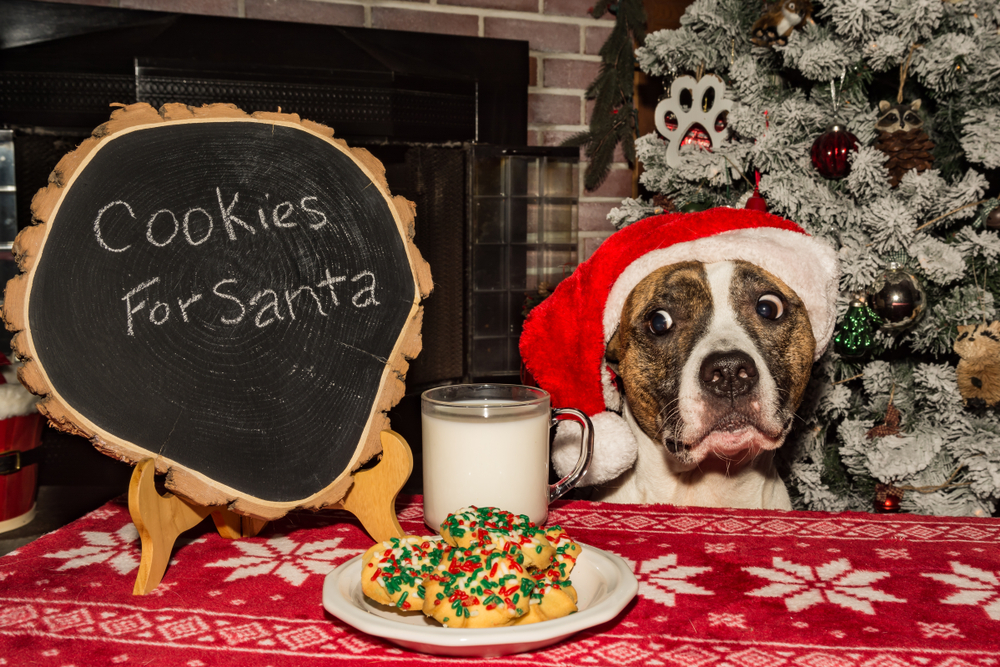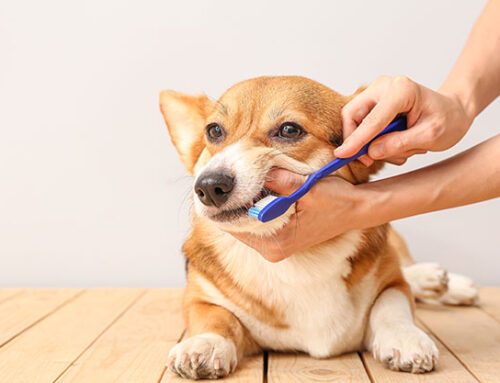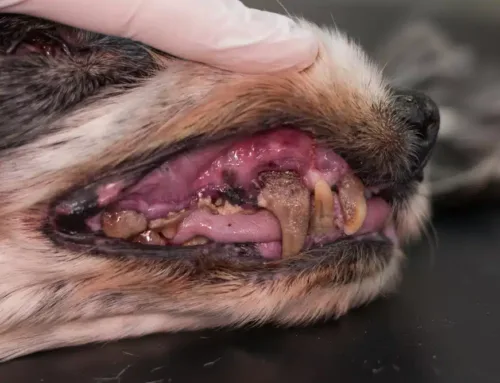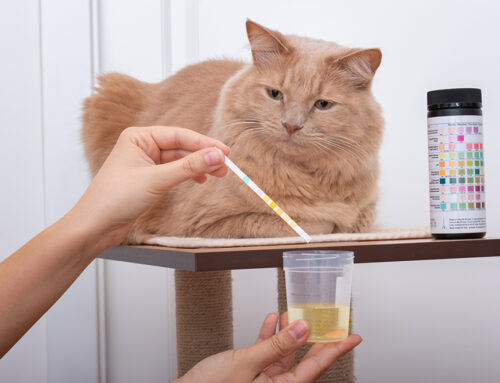Holiday surprises are great—whether it’s a family member unexpectedly returning home to celebrate, a child waking up to a shiny new bicycle under the tree, or, if you’re in a car commercial, walking outside to find a luxury SUV in your driveway. However, some surprises, such as a pet who eats something toxic and requires a trip to the emergency vet, can quickly turn your holidays from merry to scary.
The holidays are filled with delicious food and treats, and wherever there is food, you can be sure a pet is waiting patiently for something tasty to fall to the floor. Holiday food doesn’t cook itself, and the process can be stressful and distracting. From roasting the turkey and slicing the vegetables to stirring the pudding and cooling the cookies, it can be hard to manage it all. Add a furry four-legged obstacle who follows your every move, and there’s a good chance you and the food you’ve spent hours preparing will end up on the floor. Not only are pets a trip hazard, but they also are at risk of ingesting something that can harm them. Our team at The Gentle Vet shares the hidden holiday hazards in your kitchen, so you can take precautions and avoid an unwanted surprise.
Chocolate is no treat for pets
While it doesn’t seem fair, pets cannot digest chocolate well, and the delicious sweet is responsible for one of the most common food toxicities emergency veterinarians see during the holiday season. Cats are less likely to eat chocolate than dogs, likely because they lack the sweet taste receptor, but it can be toxic for both species, and the darker and more bitter the chocolate is, the higher its toxin concentration and the more dangerous it can be if ingested. If you suspect your pet has eaten chocolate—or any toxic food—immediately contact the 24-hour Pet Poison Helpline or The Gentle Vet team of veterinarians.
Xylitol is free of sugar and full of danger for pets
This sugar substitute commonly used in baking can cause a dangerous blood sugar drop or liver failure in pets. Xylitol also can be found in sugar-free gum, mints, and some peanut butters.
A few grapes and raisins can cause many problems for pets
If you are one of those brave souls who loves a good fruitcake, or you received one as a gift and are considering offering it to your furry friend, think again. Just a small quantity of grapes and raisins can cause rapid kidney failure in pets.
Sugar and spice are not nice for pets
Common spices such as nutmeg can be toxic depending on the amount a pet ingests and can cause hallucinations, stomach pain, and seizures.
Garlic, onions, and chives are a toxic trio for pets
This Allium plant family trio can be found in many holiday sides, like mashed potatoes, stuffing, and casseroles. While the flavor wouldn’t be the same without them, these ingredients are as toxic for pets as they are delicious. They contain N-propyl disulfide, a toxin that can lead to damaged blood cells and anemia.
Nuts are not for pets
Nuts such as almonds, pecans, walnuts, and especially macadamia nuts, contain significant amounts of fatty oils, which can lead to vomiting, diarrhea, tremors, rapid heartbeat, and, in some cases, paralysis or pancreatitis.
Alcohol toxicity affects people and pets

You know the damage that alcohol consumption can do to your body, and the same goes for a pet who ingests even a small amount. Pets who develop alcohol toxicity can experience dehydration, electrolyte abnormalities, liver and kidney problems, and dangerously low blood sugar.
Uncooked bones are no chew toy for pets
Chewing on bones can fracture your pet’s teeth or become lodged in their throat, causing them to choke. They also can splinter and puncture or damage your pet’s esophagus, stomach, or intestine.
As much as your pet would love to be your sous chef—and taste tester—you should block their access to the kitchen when you’re cooking for your safety and theirs. We wish you only good surprises this holiday season, but if your pet gets into trouble, contact our team at The Gentle Vet.








Leave A Comment